2024 Look Back
Improving Systems, Transforming Lives
Our Vision and Mission
A society that upholds justice, offers second chances, and ensures safe and healthy communities.
We develop research-driven strategies to increase public safety and strengthen communities.
By the Numbers
Total number of resources produced:
75
Total number of in-person and virtual events and attendees:
138
Events
9,229
Event Attendees
Total dollars brought to communities via 3 federal programs:
$189,000,000
Number of communities we’ve assisted through training and technical assistance:
43
States and Washington, DC
687
Counties
1,724
Municipalities
3
Territories
44
Tribes
Number of programs implemented with our support:
332
Total
76
Education, employment and training programs
20
Programs to support children with incarcerated parents
84
Jail diversion and alternatives to incarceration programs, mental health courts
144
Programs that improve crisis response (including 31 community responder programs)
39
Substance use treatment and housing programs
CSG Justice Center staff members across 33 states and the District of Columbia
195
General total reach
1 Million+
Visits to Our Websites
22,700+
Social Media Followers
35,500+
Newsletter Subscribers
500+
Media Mentions
2024 Year In Review
In 2024, we took critical strides toward a more just criminal justice system, reshaping how communities respond to crises, guiding policymakers with data-driven insights, and removing barriers to successful reintegration. From implementing community responder programs, to supporting mental health interventions and strengthening reentry outcomes, our work this past year reflects a commitment to building safer, more resilient communities. Together, these efforts illuminate a path forward for our justice system, demonstrating how comprehensive, compassionate, data-driven reforms can lead to lasting change in the justice system.
Championing Evidence-Based Policy
We prioritized data and research in policymaking for fair and effective criminal justice practices.
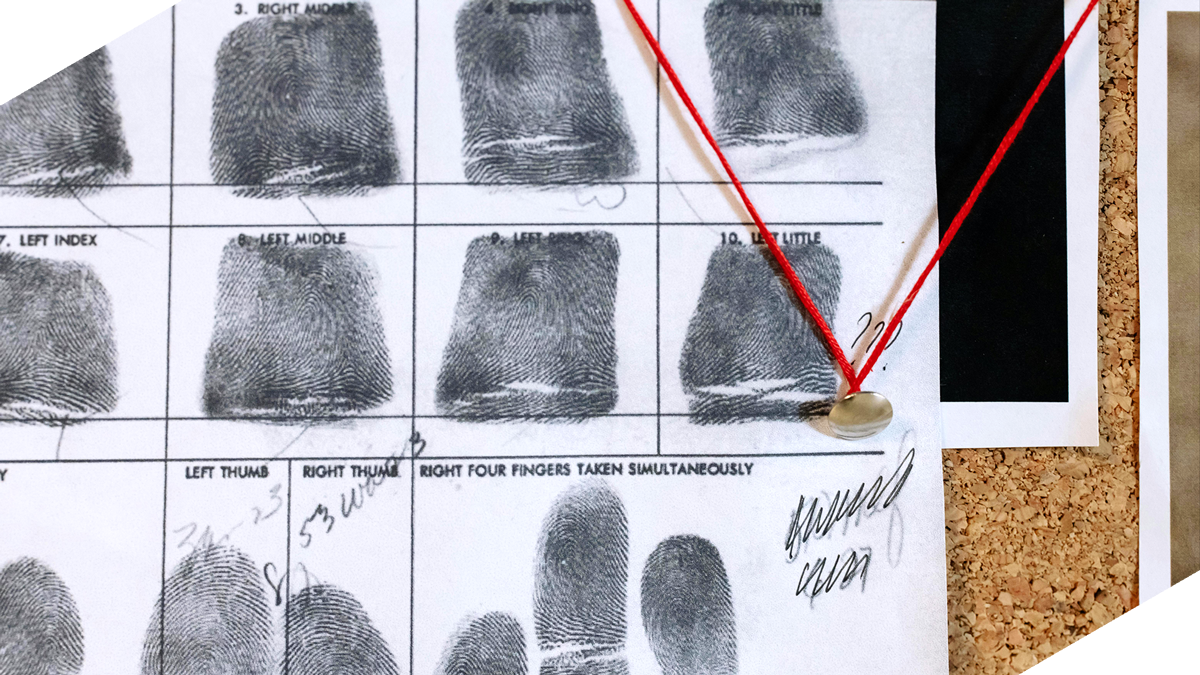
Pexels / cottonbro studio
By focusing on evidence-based solutions to violent crime, youth behavioral health, and systemic data transparency, we tackled pressing criminal justice challenges. From improving solve rates for violent crimes to supporting data-driven policymaking and addressing recidivism, we empowered stakeholders with actionable insights and tools to create safer communities nationwide.
Addressing Violent Crime and Improving Solve Rates
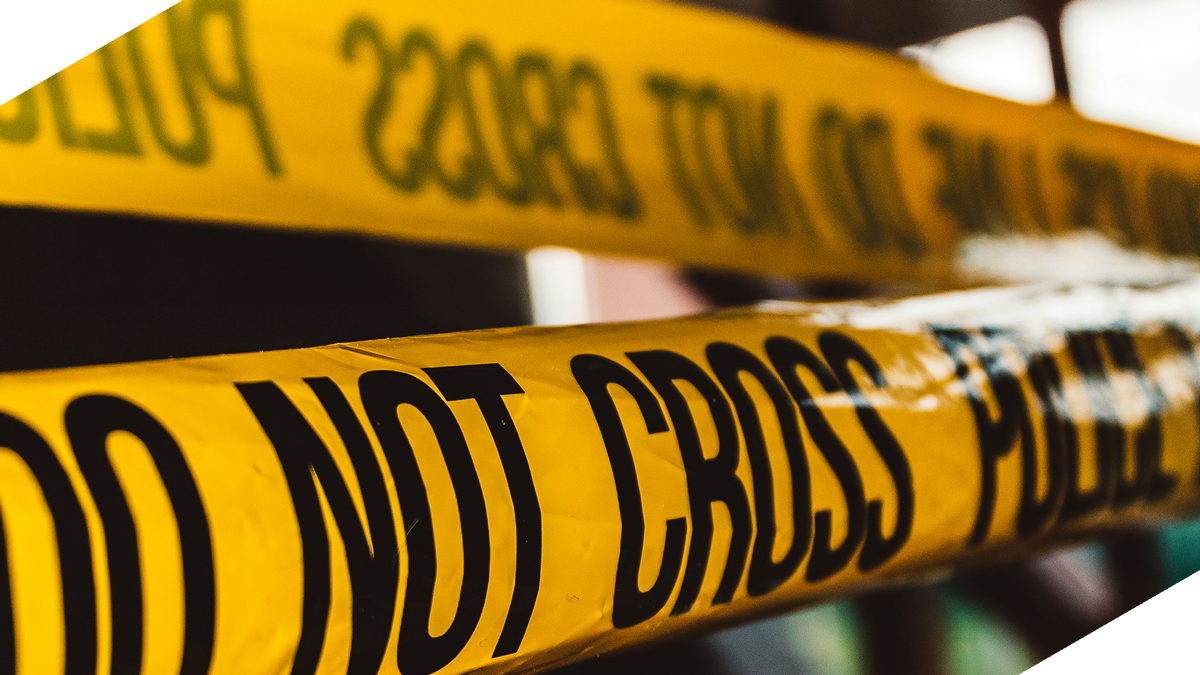
Unsplash / David von Diemar
In 2024, voters called on policymakers to curb violent crime in their communities, with many state lawmakers gravitating toward old ideas of increasing sentence lengths and time served to address this problem. We recognized an urgent need to focus state policymakers on the key issues that are driving violent crime trends and direct their attention toward strategies that improve solve rates for violent crime.
With support from the Action Now Initiative, we proactively connected with policymakers and other stakeholders in states and educated them on evidence-based solutions and the need to improve solve rates.
Key 2024 Milestones
- In October, we hosted a convening that brought together 30 advocates, researchers, criminal justice leaders, and other key stakeholders to discuss violent crime and solve rates, build consensus on the issue, and refine the research agenda in this area.
- We developed reports for all 50 states that break down state-specific trends in violent crime and solve rates.
- We published The Accountability Gap: Unsolved Violent Crime in the United States, which distills state-by-state data on solve rates, violent crime trends, and polling on public perception regarding violent crime and clearance rates.
- We advised 15 states on evidence-based policies to increase solve rates for violent crimes.
- We met with public safety leaders, policymakers, law enforcement and legal personnel, and people with lived experience to promote effective public safety strategies. Our engagement focused on improving solve rates and rebuilding trust in the justice system.
Transforming Criminal Justice Through Data Sharing
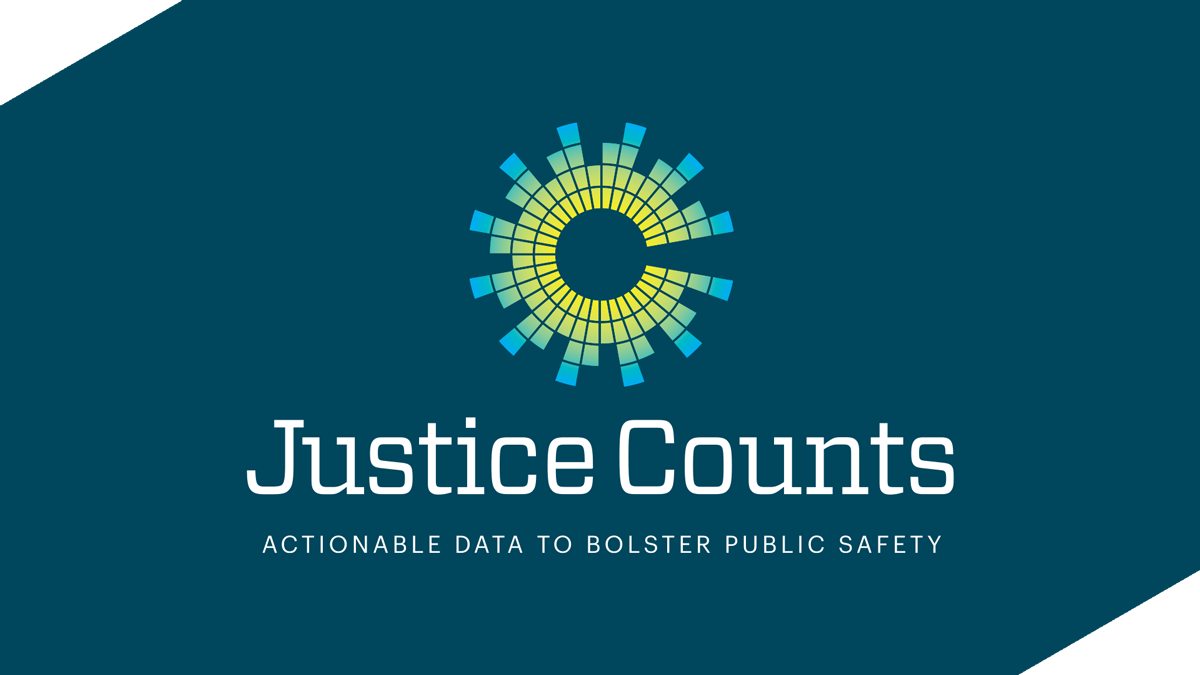
Justice Counts, an initiative of the U.S. Department of Justice’s Office of Justice Programs’ Bureau of Justice Assistance, enhances criminal justice data collection so that leaders will have actionable data to inform their decision-making. For the first time, agencies from all 50 states can report on their justice data in a first-of-its-kind centralized data-sharing portal, giving policymakers access to previously inaccessible justice system information. In 2024, we supported agencies in adopting criminal justice system metrics and beginning the process to share their data.
Key 2024 Milestones
- 2,676 agencies are now participating in Justice Counts across 29 states and 1 territory.
- Over 277,583 data points have been shared with us.
- We launched a cloud-based, open-source software program that allows agencies to enter data that will ultimately be shared publicly.
- We provided hands-on support to 19 states; Washington, DC; and Puerto Rico to improve their data collection and share data with Justice Counts.
We are excited to see the big picture of the status of the criminal legal system in New Mexico and nationwide. Being able to see local, municipal, and state data in one location with clear data descriptions and caveats will be insightful.
Crafting Data-Driven Solutions to Reduce Recidivism in Arkansas

Adobe Stock / pabrady63
Arkansas faces significant criminal justice challenges, including high recidivism, rising violent crime, and one of the nation’s highest incarceration rates. Concerned about the connection between crime and prison releases, state leaders sought our help in 2023 through the Bureau of Justice Assistance’s Justice Reinvestment Initiative.
This past year, we worked with a recidivism-reduction task force to analyze statewide trends and identify drivers of these issues. Using our findings, the task force is crafting data-driven recommendations to reduce recidivism, enhance public safety, and improve outcomes for people reentering the community from incarceration.
Key 2024 Milestones
- We examined 10 years of data; conducted 127 interviews; visited 5 community supervision offices and 3 community corrections centers; and reviewed relevant statutes, policies, and procedures.
- Through our analysis, we identified the key drivers of the state’s high rates of recidivism and violent crime to ensure policymakers have the actionable knowledge they need to improve the system.
- We offered 9 recommendations for the state to consider adopting in the upcoming legislative session, including establishing an Evidence-Based Practice (EBP) Unit responsible for evaluating, recommending, and deploying EBPs and programs and ensuring the Department of Corrections reports annually to the legislature on relevant progress and outcomes.
Reshaping Improved Outcomes for Youth

Adobe Stock / Seventyfour
Understanding the current state of youth crime, violence, and mental health is crucial for shaping effective policy and support systems. In 2024, we analyzed the most recent data to help policymakers better understand trends in youth crime, violence, victimization, and mental health issues.
With support from the Prudential Foundation and the William T. Grant Foundation, we compiled our findings in Navigating Concerns on Youth Crime, Violence, and Behavioral Health: What Does the Data Say?, a data tool to help policymakers achieve two goals:
- Develop a statewide plan to provide community-based services that address the underlying reasons for youth’s behaviors, and
- Focus the juvenile justice system on youth who commit serious and violent offenses.
Key 2024 Milestones
- Navigating Concerns was showcased at a September 2024 webinar where its findings were well received by over 200 attendees.
- We saw over 10,000 online visitors to the data tool.
- Promotion of the tool generated more than 11,000 impressions on LinkedIn, 4,200 impressions on X, and 1,300 clicks via e-newsletters.
Preventing Justice Involvement
We transformed community responses to people in crisis, emphasizing support over punishment.
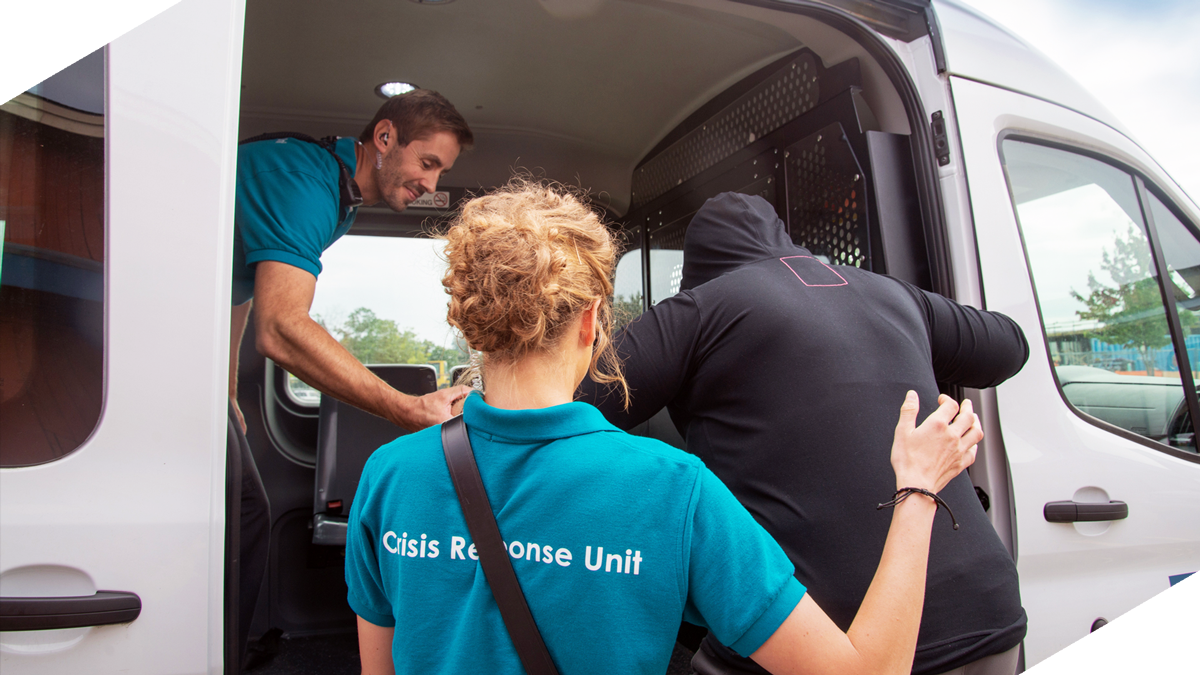
Olympia, WA’s Crisis Response Unit provides free, confidential, and voluntary crisis response assistance. Photo courtesy of Olympia Crisis Response Team.
We invested in a community-first approach to public safety and crisis response by launching a groundbreaking commission aimed at setting national best practices for community response. We also supported the development and expansion of community responder programs nationally that divert people in crisis from jails and emergency rooms to appropriate care.
Setting Standard Practices for Community Responder Programs Nationwide
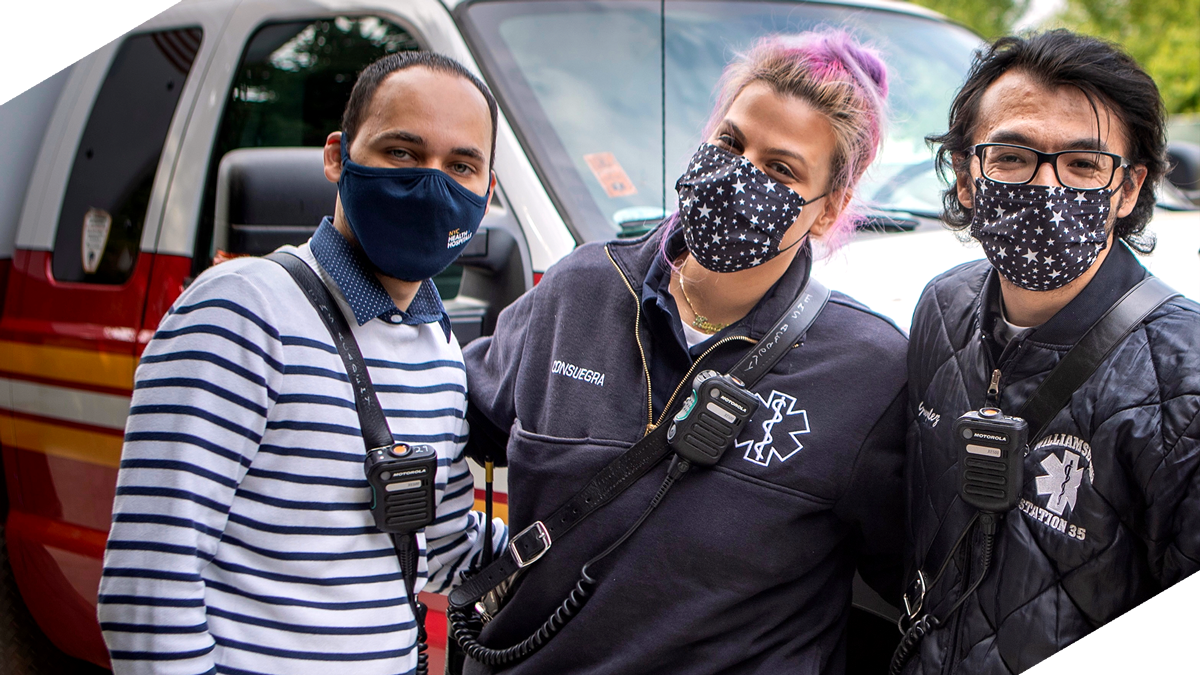
The Behavioral Health Emergency Assistance Response Division (B-HEARD) launched in New York City as a pilot program in June 2021. Photo courtesy of B-HEARD.
With growing calls for change in how jurisdictions approach public safety, community responder programs have become critical for crisis situations that do not require armed officers. These programs focus on de-escalating situations and addressing the root causes of crisis while avoiding arrest and incarceration. After launching a national commission to develop guidelines and best practices for community responder programs, in May 2024, we provided a roadmap to scale emergency first response programs across the country. The goal is simple: ensure that every call for help receives the right response.
Key 2024 Milestones
- Commissioners identified emerging practices, shared insights, and developed key actions for community responder programs.
- In May 2024, we published the commission’s report, which reached hundreds of leaders and policy influencers across the country:
- 5,000 CSG Justice Center email subscribers
- 146 launch panel participants
- 18,000 web page views
- Over 43,000 views on social media
You’ve got to say what’s a criminal call and what’s a non-criminal call. And those non-criminal calls, you don’t need that badge and a gun. You need a professional to help that person that’s going through their crisis, help them get back on track so they can start their lives the right way without trying to take a life. And again, you have to keep going back and forth with the community, with law enforcement to make it work.
Mainstreaming Community-Led Crisis Response Programs
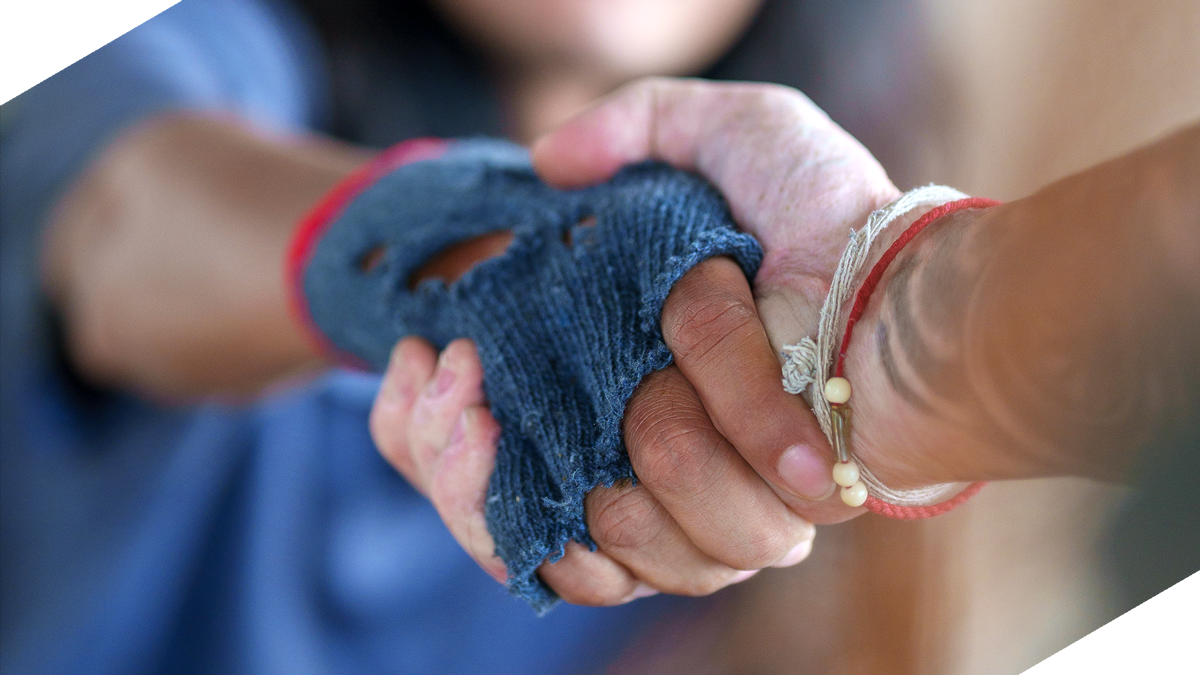
Adobe Stock / ND STOCK
In collaboration with the Center for Policing Equity and the Joyce Foundation, we offered learning communities to support the development of community responder programs. These forums addressed specific areas, such as improving crisis systems, enhancing student-centered responses on college campuses, and providing alternatives for youth experiencing behavioral health crises. We provided hands-on support to communities to plan and implement 31 community responder programs in 2024 alone.
Key 2024 Milestones
- 33 cities and counties participated in community learning programs.
- We hosted 26 learning community sessions that brought together 100 multidisciplinary professionals.
- Stamford, Connecticut, and St. Petersburg, Florida, teams finalized new policies to support youth and adult diversion through preexisting community responder programs.
Advancing Overdose Community Responder Programs in New Jersey and Michigan
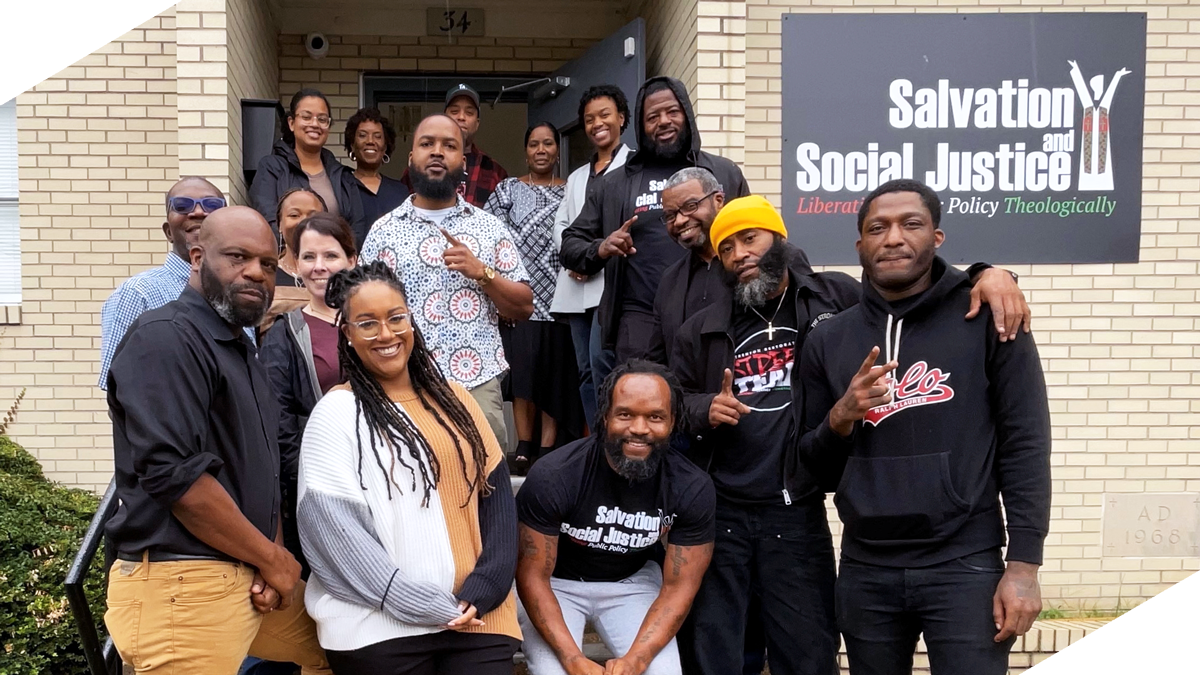
Members of the CSG Justice Center Expanding First Response team meeting with staff from Salvation and Social Justice in Trenton, NJ. Photo by Melissa McKee, CSG Justice Center.
To develop proof points for community responder programs, we provided intensive technical assistance to four communities in New Jersey and Michigan. In partnership with Vital Strategies and the New Jersey Department of Health, we helped three cities implement overdose community responder programs as alternatives to police interactions for overdose and substance use-related calls. Similarly, we worked in Washtenaw County, Michigan, to help expand a pilot into a permanent program to respond to crises such as intoxication, family disputes, and homelessness in Ypsilanti.
With funding from the Charles and Lynn Schusterman Foundation, we provided intensive technical assistance to the Oakland, California, Fire Department to expand its Mobile Assistance Community Responders team, connect to outside evaluators, and communicate to the community about the effort. We also helped the City of Detroit explore community responder programs in partnership with the Law Enforcement Action Partnership (LEAP) and Wayne State University.
Key 2024 Milestones
- We helped Paterson, Trenton, and Newark, New Jersey, implement and expand community responder programs.
- Paterson, New Jersey’s, Tier 1 Recovery Program (an overdose response program), has expanded from drug treatment referrals at the local library to performing harm reduction outreach with people experiencing homelessness and offers naloxone, wound care, fentanyl test strips, connections to vital services, and educational materials for people struggling with substance use issues.
- In Michigan, we helped expand a pilot into a permanent crisis response program in Ypsilanti.
Breaking the Cycle of Incarceration
We pioneered solutions to improve health and justice outcomes for people and communities.

Adobe Stock / Daniels C, peopleimages.com
This past year, we partnered with states to tackle key challenges, from improving behavioral health and reentry services in New Hampshire to expanding mental health care and housing access in Georgia. Nationwide, initiatives like the Medicaid & Corrections Policy Academy focused on leveraging federal resources and community strategies to enhance reentry outcomes and reduce recidivism. Together, these efforts are transforming public safety and improving the criminal justice system.
Addressing Behavioral Health Needs in the New Hampshire Prison System

Adobe Stock / nd700
New Hampshire leaders sought assistance through the Justice Reinvestment Initiative to address the high use of county jails and public health resources by people with mental illnesses and substance use disorders. Our analysis revealed that while tens of thousands of people are booked annually, a small group cycles through the system at an alarmingly high rate.
In 2024, we completed a deeper analysis of state corrections and Medicaid data to identify this high-need, high-cost population and the barriers they face in accessing behavioral health services. We provided recommendations for reforms to improve access to services and outcomes for this population and the state’s justice system.
Key 2024 Milestones
- We completed a comprehensive analysis of criminal justice data across 9 out of 10 county jails, state prisons, and parole and probation systems, covering an extensive dataset of over 45,962 individuals.
- Our findings equipped policymakers with critical insights into their state’s jail population, empowering them to develop strategies that connect people exiting jails to essential health care and treatment, fostering better outcomes for individuals and communities.
- New Hampshire is considering several of our policy recommendations, including permanently expanding Medicaid for incarcerated people and funding reentry care coordinators to support individuals’ transitions back into their community.
The New Hampshire Department of Corrections and CSG Justice Center have been working together for several years on a BJA-funded Justice Reinvestment Initiative Project… We have found this TTA to be invaluable on our state planning efforts to leverage new opportunity for Medicaid to support corrections and reentry.
Breaking the Cycle of Reincarceration in Georgia

Adobe Stock / Halfpoint
Across the country, people with unmet behavioral health needs frequently cycle through jails, courts, and crisis response systems, with no hope for an intervention that can address their needs and stop this revolving door.
We’ve been working in Georgia since 2022 to help state leaders engage 12 diverse counties and recommend policies to reduce incarceration and improve behavioral health services. In 2024, this work achieved significant milestones as the state adopted and implemented several key recommendations to improve outcomes for this vulnerable population.
Key 2024 Milestones
- Aligned with our recommendations, Georgia’s Department of Community Affairs implemented a change to its Low-Income Housing Tax Credit for 2024, which incentivizes housing development for people who frequently cycle through various systems.
- Georgia established 5 jail in-reach programs to link people to appropriate services upon release.
- The state secured nearly $20 million via the Mental Health Parity Act to help counties reduce overutilization of services.
- The state dedicated funding for The David Ralston Center for Behavioral Health and Developmental Disabilities Clearinghouse at the University of Georgia. We’re helping this team plan and implement the center.
Expanding Health Access for Incarcerated People
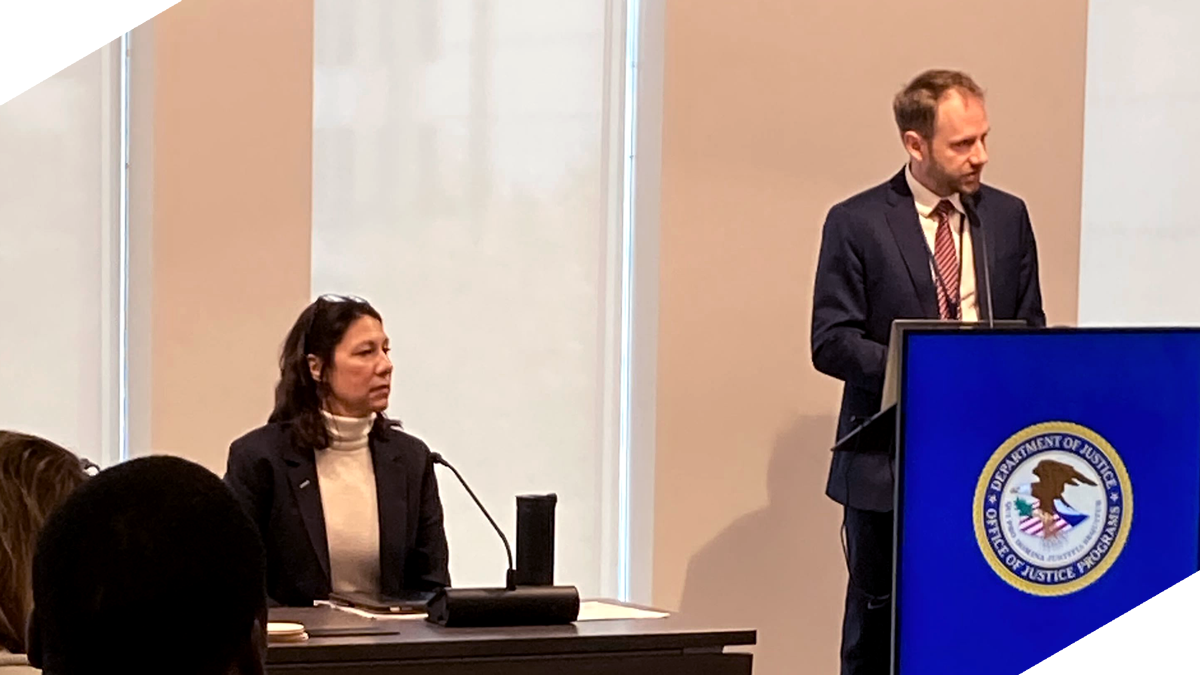
Medicaid & Corrections Policy Academy convening in October 2024. From left to right: Ruby Qazilbash, Deputy Director for Policy, BJA; Marshall Clement, Deputy Director, CSG Justice Center. Photo by Liz Buck, Center for Health Care Strategies.
Recent changes to federal rules provide an unprecedented opportunity to use Medicaid to expand health care access for incarcerated individuals and people who are reentering the community. These changes will allow communities to strengthen pre-release services and ensure post-release continuity of care. However, departments of corrections need guidance to navigate these rules, work with Medicaid agencies and their partners, and coordinate services effectively.
In September 2024, we launched a 6-month-long Medicaid & Corrections Policy Academy to help states use reentry demonstration waivers to enhance health and reentry outcomes. We’re helping teams from Alaska, Colorado, Maine, North Carolina, Oklahoma, and Wisconsin use Medicaid reentry demonstration waivers to expand health care access.
Key 2024 Milestones
- In October, we convened leaders from corrections, Medicaid, correctional health, and behavioral health from the 6 state teams to help them gain a better understanding of the 2023 Center for Medicaid Studies guidance and how they can best use Medicaid resources to support reentry and increase health access for people who are incarcerated.
- 35 participants attended the in-person Policy Academy convening.
- Each month, the Policy Academy teams participated in virtual sessions focused on key policy decisions and worked with our TA coaches to incorporate emergent best practices into their state action plans.
This academy will assist us as we develop and enhance policy and practice to better serve clients during the transition from incarceration to the community.
Enabling Successful Reentry
We boosted employment and education for people returning from incarceration.
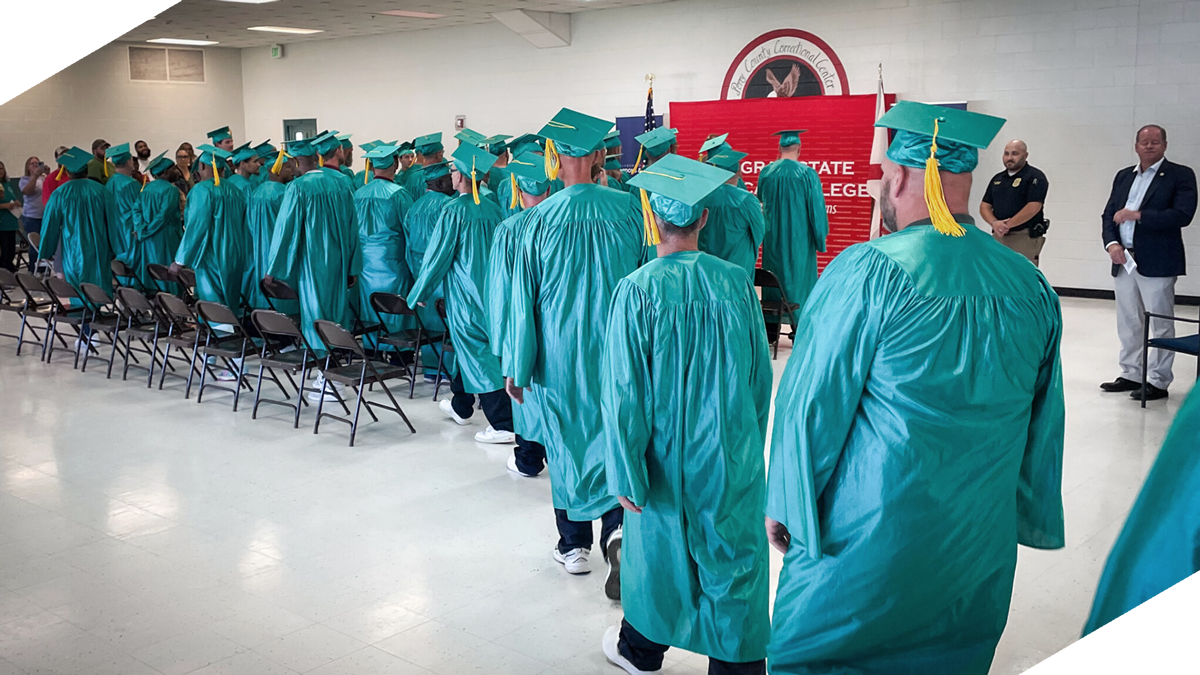
September 2024 graduates of the PREP Center, which provides reentry and rehabilitation services for people on probation and parole in Alabama. Photo courtesy of the Alabama Bureau of Pardons and Paroles.
We advanced initiatives in 2024 to improve reentry for people returning from incarceration, focusing on expanding access to employment, education, and housing. Through the Reentry 2030 initiative, states like Alabama, Missouri, and North Carolina made substantial progress toward realizing their goals to reduce recidivism and increase employment opportunities. Additionally, efforts to address barriers in occupational licensing, such as new legislation in Colorado and Oregon, highlighted the importance of creating supportive pathways for successful reintegration. We also hosted the 2024 Second Chance Act Conference, which convened hundreds of attendees interested in learning how to improve outcomes for people leaving prison and jail.
Advancing Successful Reintegration for Every Person
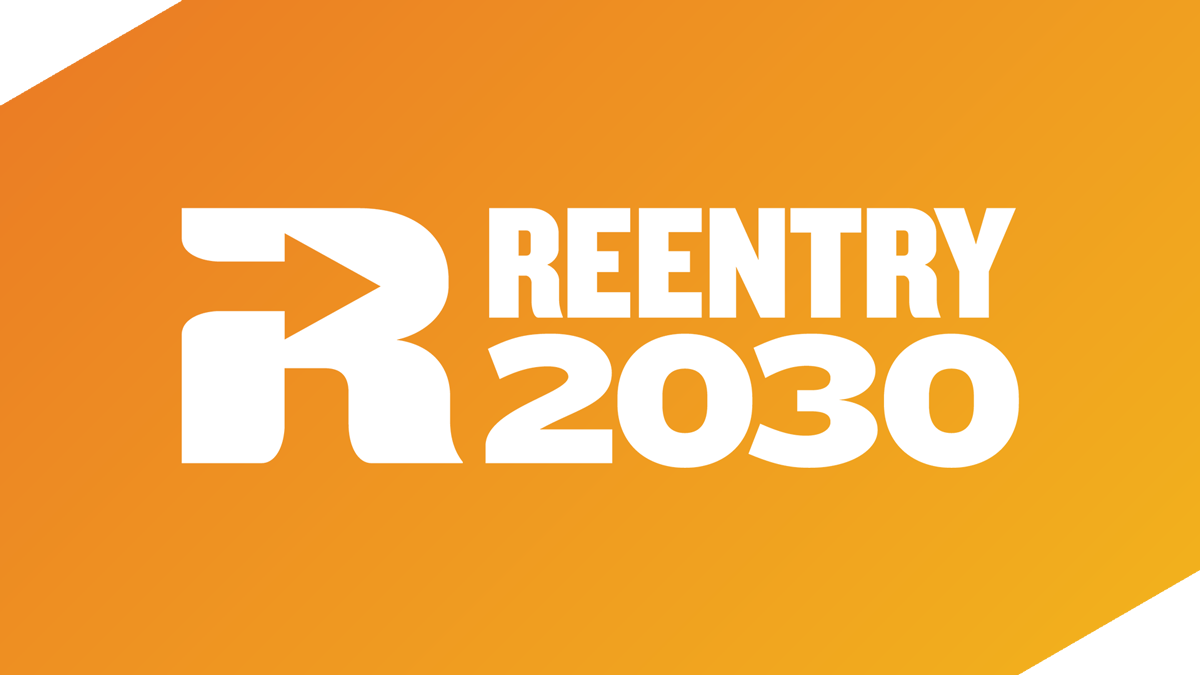
Reentry 2030 is a bold national campaign supported by the Bureau of Justice Assistance and the Bill & Melinda Gates Foundation to make reentry success a reality for people who have been in the justice system. People who are reentering their communities thrive when they are employed, stably housed, gaining skills, accessing needed treatment, and not returning to prison.
In 2024, we made substantial progress to position Reentry 2030 states to achieve better and more successful reentry and reintegration outcomes. Four states joined Alabama and Missouri in committing to Reentry 2030: Nebraska, New York, North Carolina, and Washington. We helped these states develop actionable, bold, and transformational goals and detailed plans and provided intensive technical assistance to all Reentry 2030 states to help them make progress on their goals.
Reentry 2030 in Alabama
Alabama was the second state to join Reentry 2030 and set ambitious goals related to reducing the statewide recidivism rate by 50 percent and increasing participation in employment services by 50 percent by 2030. In 2024, we worked intensively with Alabama to make progress toward these goals. This included bringing multiple agencies and systems together to assess their reentry systems and resources and identify gaps.
Key 2024 Milestones
- Alabama expanded its capacity at day reporting centers across the state, where people on probation or parole can access needed services while ensuring compliance with supervision requirements.
- The Alabama legislature passed a bill to reestablish the statewide reentry commission, Reentry Alabama, a collaborative of multiple state agencies and legislators. The commission met 5 times in 2024 and will guide the state’s work on Reentry 2030.
- Charles Barkley donated $1 million to the Alabama Community College System, part of Reentry Alabama, to support efforts to lower Alabama’s recidivism rate by increasing access to education opportunities.
What we’re doing today is turning the findings of a report into a reality for our state… We want to cut recidivism in half by the end of this decade. All of the partners you see here today are committed to the same goal. Together, let’s become one of the top states in the country on how we deal with recidivism.
Reentry 2030 in Missouri
Missouri was the first state to join Reentry 2030 and commit to improving reentry success across the state. By 2030, Missouri aims to achieve the following goals:
- 100 percent of incarcerated Missourians who need career services receive them.
- 85 percent of incarcerated Missourians are employed within 30 days of release.
- 80 percent of formerly incarcerated Missourians maintain their employment for at least 9 months after release.
In 2024, we continued providing tailored and targeted technical assistance to Missouri based on the state’s needs. This included engaging with state leaders and other stakeholders to assess their reentry systems, resources, and landscape.
Key 2024 Milestones
- Since joining the campaign, Missouri has launched 10 new reentry centers across the Missouri Department of Corrections.
- Missouri also established 6 regional reentry teams across the state.
- Missouri identified close to 2,000 Second Chance Act employers and hosted an annual Second Chance Employer Summit in March.
- Lack of access to official government documents often prevents people leaving jail and prison from obtaining employment and/or degrees, securing housing, and accessing social services. In 2024, Missouri allocated $300,000 to increase access to birth certificates for individuals before release.
- Six of Missouri’s 19 correctional centers adopted a process to obtain a written driver’s license examination before release.
I’m so excited that we’re to the point of reimagining reentry instead of continuing what we always have done. We’re challenging the status quo. I’m so proud of the support in Missouri to make our communities better.
Reentry 2030 in North Carolina
North Carolina has taken a whole-of-government approach to improve reentry outcomes. Since launching in January 2024, and with our support, the state developed a Joint Reentry Council consisting of cross-system and cross-branch stakeholders from each state agency, along with issue-specific working groups, to develop a comprehensive strategic plan to achieve their goals with key performance metrics to assess their progress.
Key 2024 Milestones
- The strategic plan to improve reentry outcomes was submitted to the governor and approved in July 2024, which resulted in immediate action to improve reentry, rehabilitation, and education services in North Carolina. This includes:
- $5.5 million allocated to expand the NC-FIT (Formerly Incarcerated Transitions) program, which offers health care services, housing, and transportation
- A new program to help incarcerated individuals secure a commercial driver’s license
- The creation of a hotline to help reentering people secure jobs, housing, and connections to vital services
- North Carolina allocated $1.9 million to expand local reentry councils statewide.
Strengthening reentry services for formerly incarcerated people is both the right and smart thing to do. This executive order directs a whole-of-government approach to improve reentry services, strengthen our economy, make communities safer, and give people the second chance they deserve.
Addressing Barriers to Employment and Occupational Licensing
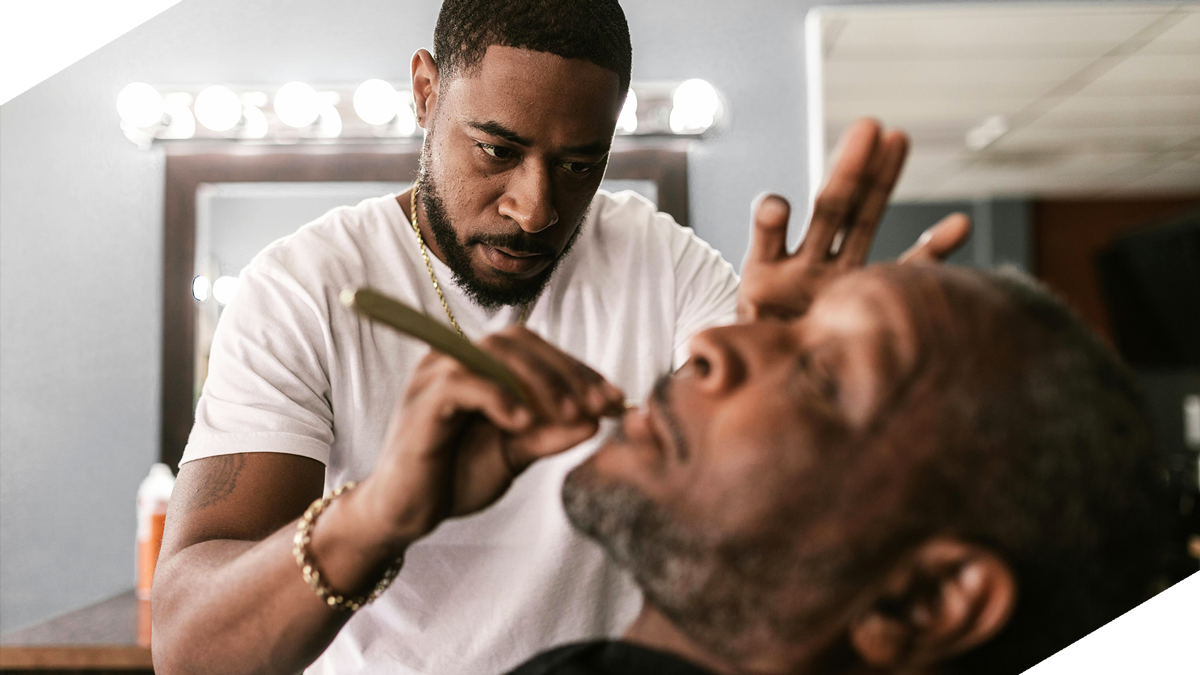
Pexels / RDNE Stock project
People with criminal records face an uphill battle seeking career advancement opportunities, particularly in higher-wage, middle-skill occupations. Since 2020, we have partnered with Arnold Ventures to position states across the U.S. to remove structural barriers to work for people with criminal records.
In 2024, we continued educating state policymakers and other stakeholders on the negative impacts of collateral consequences. We also provided policy analysis, legislative history, messaging and communications support, tailored resources, and opportunities for states to make the case to their constituents that a multifaceted approach is beneficial to the entire state.
Key 2024 Milestones
- We published a policy brief on fair chance licensing in the health care industry that identifies policy models and recommendations to expand access to work in the industry for people who were previously incarcerated.
- With our support, Oregon enacted § 44 of SB-1552, which allows people with criminal records to check whether they can get a professional license before starting education or training for that job.
- With our advisement, Colorado enacted the Ex-Offenders Practice in Regulated Occupations bill, which prevents applicants from being automatically denied occupational licenses due to a criminal history.
Celebrating 15 Years of the Second Chance Act
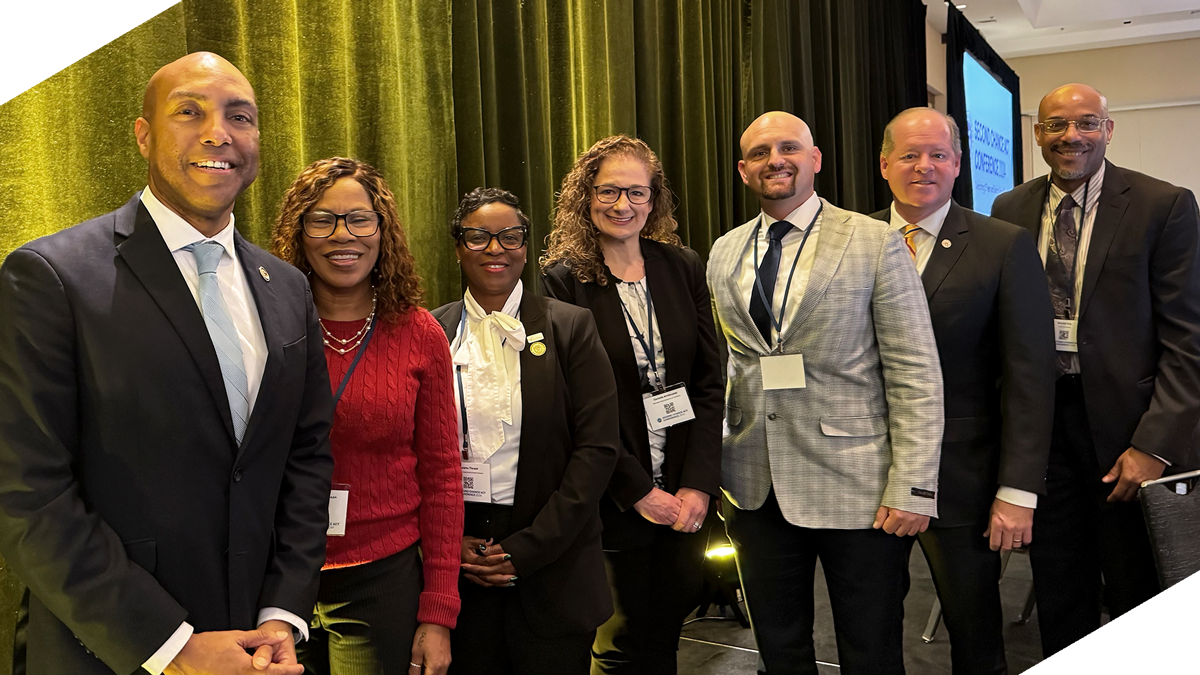
Panel from the first plenary of the 2024 Second Chance Act Conference—Building Human-Centered Reentry Systems and Creating a Whole-of-Government Approach. From left to right: Karhlton Moore, director, Bureau of Justice Assistance, Office of Justice Programs, U.S. Department of Justice; Marsha Curry-Nixon, founder and executive director, Amiracle4sure; Lateisha Thrash, director of reentry services, North Carolina Department of Adult Corrections; Danielle Armbruster, assistant secretary, Washington State Department of Corrections; James Hodgkins, assistant after market manager, Goodwill Industries of Ventura and Santa Barbara Counties; Cam Ward, director, Alabama Bureau of Pardons and Paroles; Ronald Day, senior vice president, The Fortune Society. Photo by Courtney Fields, CSG Justice Center.
We hosted the 2024 Second Chance Act Conference: Celebrating 15 Years of the Second Chance Act in December to commemorate the bipartisan Second Chance Act (SCA) and chart a path forward to achieve better outcomes for people leaving prison and jail.
The conference brought together hundreds of attendees, including current SCA grantees; people with lived experience; and leaders in corrections, courts, community supervision, behavioral health, education, employment and workforce development, housing, and family services. Attendees participated in peer learning; training on best practices; and discussions on emerging trends, innovations in the field, and new strategies.
Key 2024 Milestones
- It was the first Second Chance Act conference in 9 years
- Over 430 organizations and agencies were represented at the conference from 48 states and Washington, DC.
- Nearly 700 people attended the conference.
To all of you doing this work, I hope you know it says something about the kind of people you are—people who care about other people. What you can do to help change someone’s life is incredible.
Bolstering Reform Efforts
We secured more funding for states and localities to implement and maintain criminal and juvenile justice reforms.

iStock / ProfessionalStudioImages
We secured critical funding to support criminal justice reforms and reentry services nationwide. In 2024, we garnered $40 million for the Justice and Mental Health Collaboration Program and $117 million for the Second Chance Act, while publishing a landmark report showing a 23 percent reduction in state recidivism rates since 2008.
Diverting People from Jails and Improving Access to Mental Health Resources
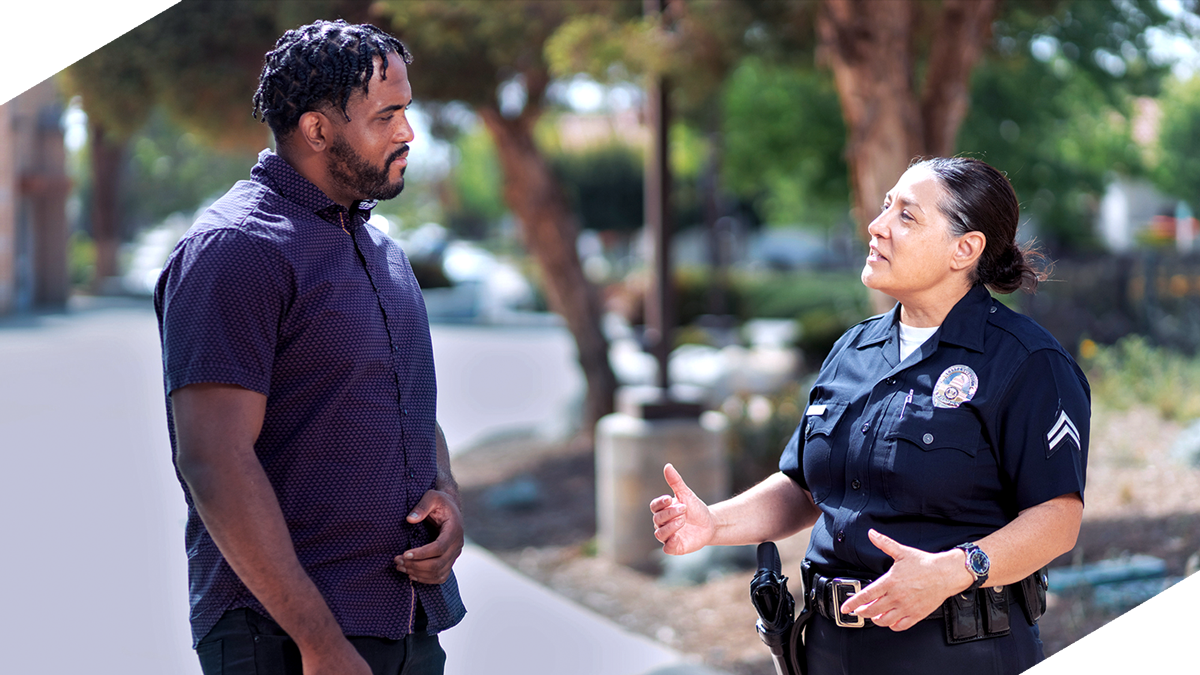
Pexels / Kindel Media
In 2004, we helped secure the passage of the Mentally Ill Offender Treatment and Crime Reduction Act (MIOTCRA), which funds the Justice and Mental Health Collaboration Program (JMHCP). Since then, JMHCP has provided $358 million to communities in 49 states to divert adults and youth with mental illnesses from the justice system.
Through JMHCP, we have helped grantees establish over 800 diversion programs and initiatives nationally, including 92 alternatives to traditional law enforcement responses to people in crisis; hundreds of mental health courts; alternatives to arrest and detention; and other services. And, we have worked tirelessly on Capitol Hill to maintain and grow support for JMHCP. In 2024, we secured $40 million in funding for JMHCP for FY 2024.
Key 2024 Milestones
- We secured $40 million in funding for JMHCP for FY 2024.
Advancing Bipartisan Support for Reducing Recidivism and Saving Taxpayer Dollars

Adobe Stock / mandritoiu
Working with the Bureau of Justice Assistance, we led the charge to create the Justice Reinvestment Initiative in 2009 and grew the federal investment threefold in the last 15 years while maintaining bipartisan support.
Since the initiative’s inception, we’ve worked with 34 states to analyze data, assess policies and practices, and develop data-driven recommendations for policy and practice changes. Most of these states enacted reforms designed to reduce crime and recidivism, improve access to treatment, and increase collaboration across systems. States have saved or averted over $3.2 billion and reinvested over $850 million.
This past year, we partnered with our members to maintain deep support for this important program. We secured $32 million in appropriations for the Justice Reinvestment Initiative in 2024.
Key 2024 Milestones
- We secured $32 million in appropriations for the Justice Reinvestment Initiative.
Funding Reentry Services and Reducing Recidivism at the Federal Level
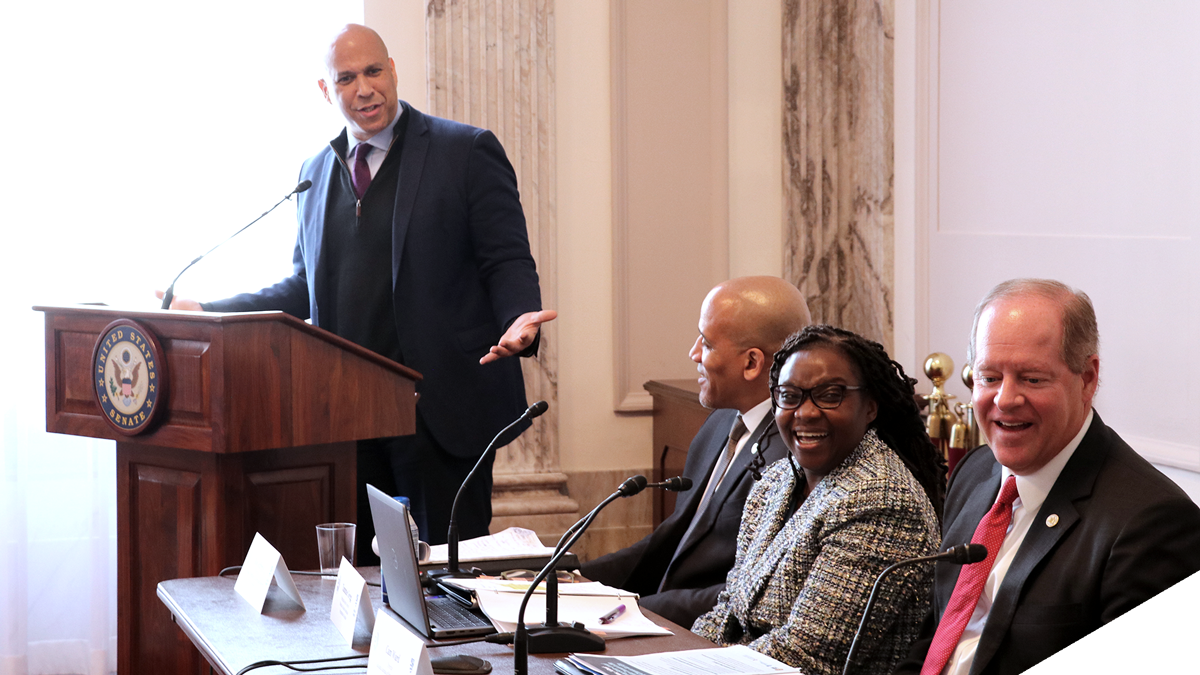
Panel at SCA Hill briefing in April 2024. From left to right: Sen. Cory Booker (D-NJ); Rob Jeffreys, Director, Nebraska Dept. of Correctional Services and President, Correctional Leaders Association; Tammie Gregg, Principal Deputy Director, BJA; and Cam Ward, Director, Alabama Bureau of Pardons and Paroles and Chair, CSG Justice Center Advisory Board. Photo by Courtney Fields, CSG Justice Center.
We helped pass the Second Chance Act (SCA) in 2008 and re-authorize it in 2019, securing nearly $1 billion for reentry services nationwide. We have not let up on our efforts—in April 2024, we hosted a congressional briefing underscoring SCA’s impact and emphasizing the need for continued support.
Backed by a coalition of 175 organizations, congressional champions introduced bipartisan reauthorization legislation in 2024, which the Senate passed in December 2024. Additionally, our work on the Hill led to $117 million in appropriations for SCA for FY 2024.
Key 2024 Milestones
- In April 2024, we hosted a congressional briefing underscoring SCA’s impact.
- We helped secure $117 million in appropriations for SCA for FY 2024.
- To highlight SCA’s success, we published 50 States, 1 Goal: Examining State-Level Recidivism Trends in the Second Chance Era, showing 15 years of progress in reducing recidivism.
Sometimes when I see people and I listen to testimonies, I have to pinch myself and say, ‘Is this real? Is this the work we’ve been able to get done?’… We took the Second Chance banner, and we’ve flown it all across the country. To remind everyone what life can be, even for those whose life took a different track.
In the News
In The News
Our work, staff, and board members received notable media attention in 2024, with features on behavioral health initiatives, such as community responder programs (Crain’s Detroit), alternative response efforts (Governing), and our Medicaid and Corrections Policy Academy (Healthcare Innovation). Advisory Board member Chief Justice Michael Boggs co-wrote an op-ed on improving services for frequent system users (Judicature).
And various outlets covered our expertise on law enforcement virtual reality training (Police1), school truancy (NPR), youth-focused data tools and resources (Crime and Justice News), and the Reentry 2030 initiative (Jails to Jobs).
Financials
Financials
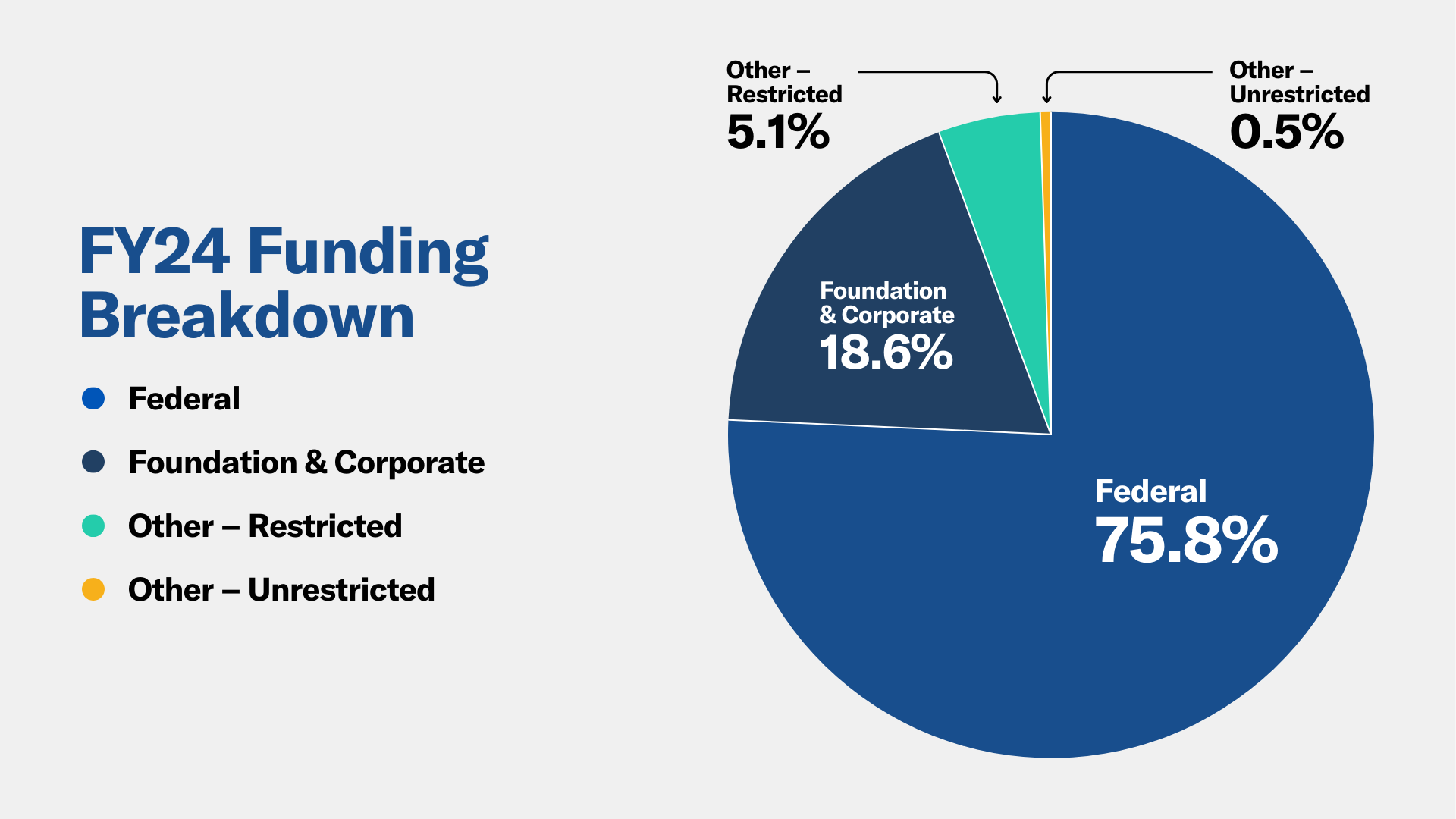
The vast majority of our work is funded by restricted sources. This restricted funding allows us to do important work to increase public safety and strengthen communities.
Yet unrestricted funding plays a critical role in our ability to realize our mission. It allows us to start new projects, nimbly respond to needs in the field, and advocate on Capitol Hill. For instance, unrestricted funding allowed us to seed efforts to help states address low solve rates for violent crimes.
We welcome unrestricted support to do more of this type of work.
Our Advisory Board
Our Advisory Board
Our Advisory Board establishes our policy and project priorities. The board features state legislators from both political parties, judicial leaders, health and human service agency administrators, victim advocates, corrections administrators, juvenile justice professionals, law enforcement officials, and people who have experienced the criminal justice system firsthand. Together, our Advisory Board represents a cross-section of leaders who shape criminal justice policy in various parts of the country.
We greatly appreciate their service to the CSG Justice Center. Their experience and expertise ground and enhance all our work.
Executive Committee
- Cam Ward, Chair, Director, Alabama Bureau of Pardons and Paroles
- Marie Williams, Immediate Past Chair, Commissioner, Tennessee Department of Mental Health and Substance Abuse Services
- Peter J. Koutoujian, Jr., Vice Chair, Sheriff, Middlesex County, Massachusetts
- Michael P. Boggs, Chief Justice, Supreme Court of Georgia
- Bernice Corley, Executive Director, Indiana Public Defender Council
- Marsha R. Curry-Nixon, Founder and Executive Director, Amiracle4sure, Inc.
- Elgie R. Sims, Jr., Senator, Illinois General Assembly
Board Members At-Large
- Nicholas J. Deml, Commissioner, Vermont Department of Corrections
- Theresa Gavarone, Senator, Ohio General Assembly
- John Lovick, Senator, Washington State Legislature
- Valerie Mielke, Deputy Commissioner, New Jersey Department of Human Services
- Ann Miller, Managing Attorney, Tribal Defenders Office of the Confederated Salish and Kootenai Tribes
- Joe O’Leary, Director, Oregon Youth Authority
- Christelle Perez, Division Chief, Violence Prevention and Crime Victims Services, Office of the Illinois Attorney General
- Christopher Poulos, Executive Director, Center for Justice and Human Dignity
- Shannon Roers Jones, Representative, North Dakota Legislative Assembly
- Charles A. Spahos, General Counsel, North Carolina Conference of District Attorneys
- Clarke Tucker, Senator, Arkansas General Assembly
- Sheryl D. Victorian, Chief, City of Waco Police Department
- Nan Waller, Judge, Multnomah County Circuit Court
Our Funders
Our Funders
Our work could not be done without support from a diverse set of federal, private, and local partners.
- Action Now Initiative
- Addiction Policy Forum
- Alkermes – The Waltham, Massachusetts Facility
- American Psychiatric Association Foundation
- Arnold Ventures
- Bill & Melinda Gates Foundation
- Blue Meridian Partners
- Bureau of Justice Assistance, U.S. Department of Justice
- California Department of State Hospitals
- Center for Policing Equity
- George Mason University
- Homebase
- Indiana University
- Kane County Juvenile Justice Council
- Kansas Department for Aging and Disability Services (KDADS)
- Kansas Department of Corrections
- Kentucky Commission on Mental Health
- MacArthur Foundation
- Mathematica Inc.
- MDRC
- Michigan Department of Health and Human Services
- National Institute of Justice, U.S. Department of Justice
- New York State Office of Victim Services
- North Dakota Division of Juvenile Services
- Office of Juvenile Justice and Delinquency Prevention, U.S. Department of Justice
- Pennsylvania Commission on Crime and Delinquency
- Pew Charitable Trusts
- Prudential Foundation
- Rhode Island Department of Corrections
- Schusterman Family Philanthropies
- Seattle Police Department
- State Justice Institute
- State of Montana Office of Court Administrator
- State of Nebraska
- State of Vermont
- The Jacob & Valeria Langeloth Foundation
- The Joyce Foundation
- The Tow Foundation
- U.S. Department of Housing and Urban Development
- University of Connecticut School of Public Policy
- University of Massachusetts- Medical School
- Vital Strategies
- Washington Department of Children, Youth & Families
- William T. Grant Foundation
Our Donors
Our Donors
Our work to build stronger and safer communities would not be possible without the generous support of our funders and donors. Their support advances our mission to develop research-driven strategies to increase public safety and strengthen communities nationwide.
- Heather Bell
- John Bell
- Michael Boggs
- Katelyn Bower
- Renee Brackett
- Judy Clement
- Marshall Clement
- David D’Amora
- Wright Dickinson & Sandy Bubalo
- Lucia Fraga
- Sandra Jamet
- Peter Koutoujian
- Johny Lovick
- Valerie Mielke
- Ashan Moinuddin
- Bishop Cameron I.E. Nelson
- Cindy Newman Bower
- Joe O’Leary
- Christopher Poulos
- Megan Quattlebaum
- Linda Rodriguez
- Miroslava Sequera
- Jennifer Shin
- Elgie Sims
- Charles Spahos
- Ernest Stevens
- Margaret Taddeucci
- Clarke Tucker
- Sheryl Victorian
- Nan Waller
- Cam Ward
- Marie Williams
- Briana Zamora
Looking Ahead
Looking Ahead
This past year was full of achievements and progress, and the CSG Justice Center is looking forward to celebrating many more milestones in 2025.
The Stepping Up initiative has supported counties to reduce the number of people with serious mental illnesses in their local justice systems. Over the past 10 years, we have grown the initiative from only a handful of counties to over 570 counties across 45 states. In 2025, we’ll celebrate the program’s 10th anniversary by highlighting counties’ accomplishments and launching a renewed vision for the initiative.
We’ll also continue to grow the Reentry 2030 campaign in 2025. This past year, we brought Nebraska, New York, North Carolina, and Washington on board, bringing the total number of participating states to 6. In 2025, we’ll engage several more states in the initiative and continue supporting work in the existing states. We’ll also launch a new Reentry 2030 dashboard that tracks participating states’ progress in improving reentry success.
New Medicaid rules starting in 2025 have created an unprecedented opportunity to increase health services in carceral facilities and as people return to their communities, yet many states are grappling with how best to implement changes. In the coming year, we’ll build on the work of the Medicaid & Corrections Policy Academy and position jails and prisons to leverage these changes to expand health services for adults and youth in the system.
Building on Navigating Concerns on Youth Crime, Violence, and Behavioral Health, we’ll host a convening in late 2025. This convening will bring together state teams from the juvenile justice, child welfare, health, and education systems to ensure that youth and families receive the services and treatments necessary to improve their health outcomes and decrease the likelihood of juvenile justice system involvement.
This is just a sampling of the great work we have in store for 2025. Thank you for your support.
Join Us
Join Us
Together, we’re making a meaningful difference in the lives of individuals, families, and communities across the country. Your support helps us build fairer systems, empower second chances, and drive transformative change in millions of lives. But our work doesn’t stop here.
Stay connected and be a part of our success. Sign up for our newsletters to receive the latest updates, insights, and stories of impact. Follow us on LinkedIn, X, Facebook, and Instagram to join a growing community of leaders in the field who share your passion.
And if you’re inspired by our work over the past year and our mission to increase public safety and strengthen communities, consider donating to help our efforts. Every contribution makes a difference in advancing second chances and building safer, stronger communities.
Resources
Resources
If you’d like to further explore the highlights of our work in 2024, take a look at these links to featured projects.
- Expanding First Response National Commission Report
- Tools for State to Address Crime: 50-State Crime Data
- The Accountability Gap: Unsolved Violent Crime in the United States
- Justice Counts
- The Justice Reinvestment Initiative
- Justice Data Snapshots
- Navigating Concerns on Youth Crime, Violence, and Behavioral Health: What Does the Data Say?
- States Supporting Familiar Faces Case Study: Georgia
- Medicaid and Corrections Policy Academy
- Reentry 2030
- Expanding Access to Health Care Jobs for Workers with Criminal Histories
- 50 States, 1 Goal: Examining State-Level Recidivism Trends in the Second Chance Act Era










